Politics
Nnamdi Kanu’s release may not end S’East insecurity – Soludo
Published
4 months agoon
By
Ekwutos Blog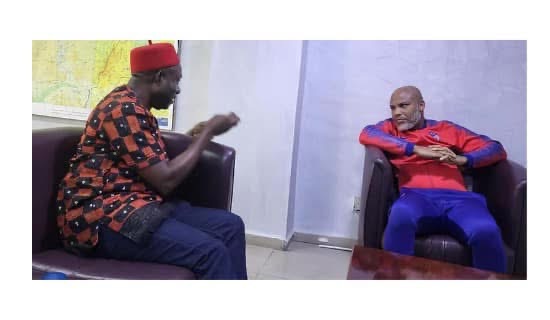
Anambra State Governor, Charles Soludo and IPOB leader, Nnamdi Kanu
The Governor of Anambra State, Prof. Chukwuma Soludo, on Tuesday, said he doubted if the release of the detained leader of the separatist Indigenous People of Biafra, Nnamdi Kanu, would end the pervasive insecurity in the South-East.
Soludo argued that criminals had hijacked the Biafran struggle and were now exploiting the Biafran struggle and Kanu’s name to perpetrate organised crime and fuel insecurity in the South-East region.
Soludo noted that under the guise of agitation, these individuals had turned to “lucrative criminality,” engaging in armed robbery, kidnapping, cultism, and idolatry.
He insisted that their activities have nothing to do with the genuine liberation struggle, stating that such crimes are purely driven by greed and lawlessness.
Speaking during a press briefing at the Governor’s Lodge in Amawbia on Tuesday, Soludo revealed that over 99 per cent of criminals arrested in Anambra in the past two years were Igbo, with more than 70 per cent being non-indigenes of the state.
“The so-called agitators have transformed into organised criminal gangs,” Soludo said. “They hide in forests, kidnapping innocent citizens for ransom, and they justify their atrocities under the pretext of Biafra. Let us be clear—this has nothing to do with any liberation movement. Criminality has taken on a life of its own. These people have tasted blood, and now, money is their motivation.”
The governor expressed doubt that the release of the detained IPOB leader, Nnamdi Kanu, would end the crisis, as the criminals appear to have severed ties with the original agitation.
Kanu and IPOB have repeatedly dissociated themselves from these criminals,” Soludo explained. “Even if Nnamdi Kanu is released today, I’m not sure they would listen to him because what they now pursue is wealth, not liberation. They have become enemies of the people they claim to protect. Who are they fighting for when they kidnap and kill their own people?”
Soludo further decried the complicity of some communities in shielding these criminals, adding that insecurity in the region was sustained because some locals viewed security agencies as adversaries and the criminals as liberators.
“Our people know these criminals. They are our brothers, cousins, and neighbors,” he said. “It’s unfortunate that in some communities, people contribute food to sustain these criminals hiding in the forests. How do you fight insecurity when people see criminals as heroes and the police as the enemy?”
The governor announced the plan to launch ‘Operation Udo Ga Chi’ (Operation Peace Shall Reign), a state-wide security initiative scheduled to commence after January 25.
The operation, Soludo said, would deploy 163 branded vehicles for stop-and-search activities and integrate advanced surveillance technology to track criminals and secure forests.
“We are intensifying our security measures with both kinetic and non-kinetic approaches. We have trained forest guards to work with vigilantes and LG authorities to reclaim our forests. I call on these criminals to embrace our amnesty window, which remains open until the end of February,” Soludo added.
Calling for collective action, Soludo urged religious leaders, traditional rulers, and residents to take ownership of their communities and cooperate with security agencies.
Insecurity is a monster that must be confronted collectively,” the governor emphasized. “If you see something, say something. Anambra will no longer be a haven for criminals masquerading as freedom fighters.”
He expressed gratitude to the Federal Government and security agencies for their support, reiterating his administration’s resolve to rid the state of criminal elements and ensure lasting peace and security.
You may like
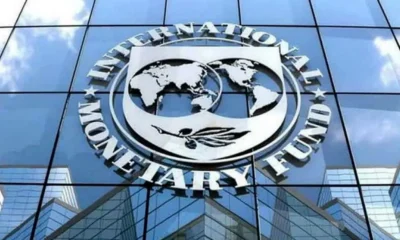

Resolve trade tensions inimical to global economic growth – IMF tells countries
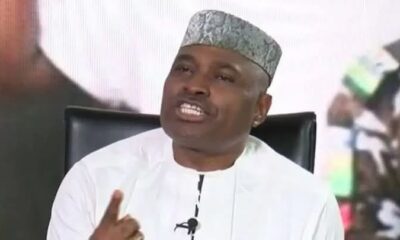

Kenneth Okonkwo Predicts Regret for PDP Defectors, Says 2027 Election Will Be People vs APC


Governor Mbah decorates CSO with new rank


NAF airlifts Airforce students to their destinations across Nigeria


APC CANDIDATES FOR 2025 NIGER STATE LOCAL GOVERNMENT COUNCIL ELECTION
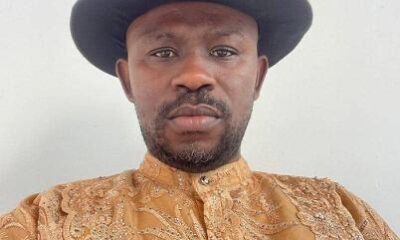

Kyari brought structure, stability to NNPCL – NDYC
Politics
Kenneth Okonkwo Predicts Regret for PDP Defectors, Says 2027 Election Will Be People vs APC
Published
25 minutes agoon
April 25, 2025By
Ekwutos Blog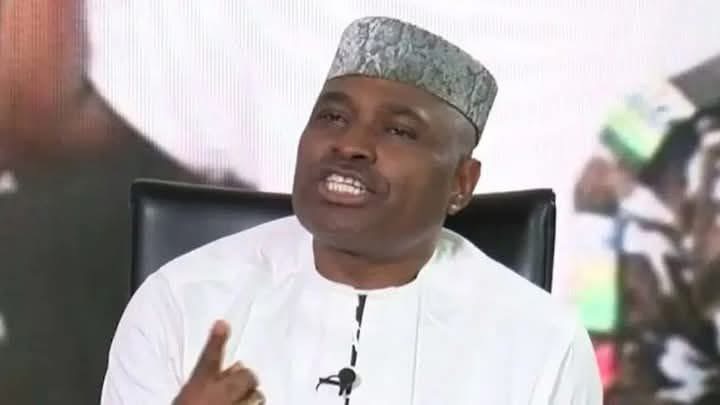
Nollywood veteran and political commentator, Kenneth Okonkwo, has expressed strong disapproval of the recent wave of defections from opposition parties to the ruling All Progressives Congress (APC), declaring that those making the move will come to regret it within a year.
Okonkwo’s remarks come in the wake of the high-profile defection of Delta State Governor, Sheriff Oborevwori, his deputy Monday Onyeme, and former Governor Ifeanyi Okowa, along with several commissioners and Peoples Democratic Party (PDP) stakeholders, who all officially joined the APC on Wednesday.
Reacting via a post on X, the actor-turned-politician did not hold back, accusing the defectors of abandoning their parties for selfish reasons—chiefly to evade anti-corruption scrutiny and secure personal benefits rather than serve the Nigerian people.
According to him, the ruling party’s alleged incompetence and corrupt practices will worsen economic conditions, increase hunger and suffering, and ultimately lead to widespread discontent among citizens.
“Mark my words,” Okonkwo wrote, “Before one year from now, these spineless, shameless, and corrupt members of the opposition parties who are running into the APC now to escape EFCC and for stomach infrastructure at the expense of the Nigerian economy and Nigerian people will regret their actions.”
He further asserted that the ruling APC’s misgovernance would be so glaring that the 2027 general election would no longer be a typical party contest but a showdown between the Nigerian people and the APC government.
Politics
APC CANDIDATES FOR 2025 NIGER STATE LOCAL GOVERNMENT COUNCIL ELECTION
Published
9 hours agoon
April 24, 2025By
Ekwutos Blog
1. Hon. Sayuti Ibrahim Halilu – Again
2. Hon. Iliyasu Zakari – Agwara
3. Hon. Usman Manko Mohammed – Bida
4. Hon. Abdullahi Mohammed Nasiru – Borgu
5. Hon. Abdullahi Usman Laka – Bosso
6. Hon Mustapha Mohammed Jibril – Chanchaga
7. Hon. Usman Ndana – Edati
8. Hon. Hassan Mohammed – Gbako
9. Hon. Jonah Ishaya – GURARA
10. Hon. Isah Baba Bida – Katcha
11. Hon. Lawal Yusuf – Kontagora
12. Hon. Abdullahi Umar Evuti – Lapai
13. Hon. Mohammed Alfa Ma’ali – Lavun
14. Hon. Mamuda Mamman – Magama
15. Hon Aliyu Baga Mohammed – Mariga
16. Hon. Umar Jibril Igade – Mashegu
17. Hon. Jibril Abdullahi Muregi – Mokwa
18. Hon. Aminu A. Najume – Munya
19. Hon. Aminu Umar Yandayi – Paikoro
20. Hon. Ayuba Usman Katako – Rafi
21. Hon Abdullahi Yakubu Dukku – Rijau
22. Hon. Isyaku Bawa – Shiroro
23. Hon Isyaku Bawa Naibi – Suleja
24. Hon. Danladi T. Ijah – Tafa
25. Hon Mohammed Ibrahim Lokogoma – Wushishi
Politics
ANALYSIS: With Traore, Burkina Faso can get governance right, achieve developmental aspirations
Published
9 hours agoon
April 24, 2025By
Ekwutos Blog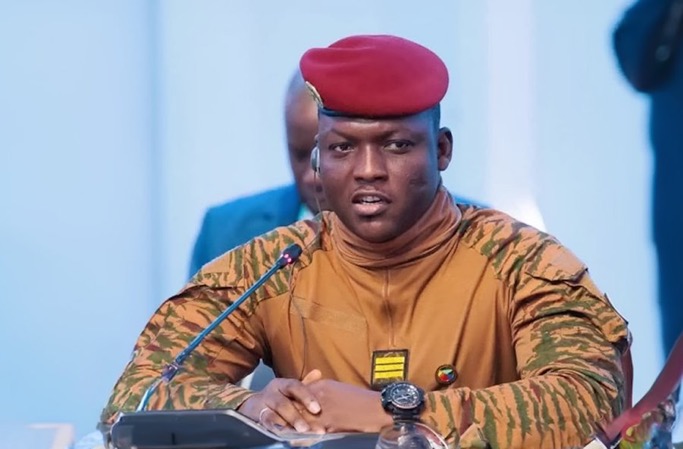
The challenge will be translating Burkina Faso’s rich mineral resources and promising economy into stability and development.
At 36, Burkina Faso’s Ibrahim Traoré is the world’s youngest president, in stark contrast to Africa’s average leader age of 63. He took office in September 2022 after overthrowing Paul-Henri Damiba, who had ousted former president Roch Kaboré earlier that year.
The foundations of the country’s coup administration have been rocky. Last week, the military government survived another apparent coup attempt; one among several since Mr Traoré, an army captain, came to power.
In his inaugural statement, Mr Traoré said Burkina Faso faced an emergency, citing crises in security, defence, healthcare, social action and infrastructure. He pledged to combat terrorism and adhere to the transition timetable agreed with the Economic Community of West African States (ECOWAS), which aimed to restore democratic rule by 1 July 2024.
However, Burkina Faso has since withdrawn from ECOWAS, forming instead the Alliance of Sahel States with Mali and Niger – countries also run by post-coup administrations. Under Burkina Faso’s new transition plan, Mr Traoré may remain in his position until at least 2029.
His popularity has soared since his ascension to power. At President John Mahama’s inauguration in Ghana on 7 January, Mr Traoré received the loudest applause of all 21 African heads of state. This showed not only his popularity but the trend of tolerance for military rule in Africa, especially among the youth.
Afrobarometer reports that almost two-thirds of Burkinabé believe the army should intervene when leaders abuse their power. Likewise, 66 per cent accept military rule, up from 24 per cent in 2012. The fact that the survey was conducted at a time when the country was under military rule portrays a general acceptance of the regime.
However, Mr Traoré’s popularity goes beyond acceptance of military rule. He has embarked on radical reforms that resonate with many Burkinabé. These include reversing his predecessor’s salary increase for government officials while he remainson his military captain earnings.
As part of efforts to take ownership of mineral resources, Mr Traoré has nationalised two gold mines and stopped exporting unrefined gold to Europe, instead inaugurating a national gold refinery expected to process 150 tonnes annually.
Other significant achievements include establishing the National Support Center for Artisanal Cotton Processing, building a new airport, and considerable agricultural investment.
While these are noble attempts to industrialise Burkina Faso, the country must not fall into the usual traps of inefficiencies, corruption and mismanagement that characterise most African state-owned enterprises.
Further, Mr Traoré has rejected financial assistance from the International Monetary Fund and World Bank, insisting the country can develop without the West’s loans and conditionalities. For some, this is a demonstration of Africans handling their own affairs. For the youth, Mr Traoré’s regime is a chance to show what young people can achieve. But for most ordinary Burkinabé, the priority is simply improving their daily living conditions.
At a time of increasing global uncertainty and a decline in international aid, Africa must strive for self-reliance and control of its resources. Like many African countries, Burkina Faso is blessed with natural resources that, if properly managed, could transform citizens’ lives.
The country has mineral resources and produces substantial quantities of gold, zinc, copper, manganese, phosphate and limestone. It also has reserves of diamonds, bauxite, nickel and vanadium, most of which remain largely unexploited.
The country has made gains. Gross Domestic Product (GDP) (in market exchange rate) increased from $3.2 billion in 1990 to $18.3 billion in 2023, and extreme poverty declined from 83 per cent to 27.7 per cent in the same period. But significant challenges remain.
According to the 2023/2024 Human Development Report, Burkina Faso is classified as having low human development and is ranked 185th out of 193 countries on the Human Development Index. Itplaced 149th out of 167 countries on the 2024 Sustainable Development Goals Index, and on the Multidimensional Poverty Index, 64.5 per cent of the population is multidimensionally poor.
However, the economy holds significant promise. Recent research by the Institute for Security Studies’ African Futures and Innovation team shows that Burkina Faso’s economy could grow at an average rate of 8 per cent from 2025 to 2043.
This would translate into an additional GDP per capita of $1,120 above a business-as-usual forecast – and reduce income poverty to only 2.6 per cent of the population. This means an extra 2.4 million Burkinabés could be lifted out of poverty by 2043.
The study identified governance reforms as critical to unlocking the country’s development potential. Indeed, good governance could raise GDP per capita by an extra $240 above a business-as-usual forecast, lifting 500,000 additional Burkinabé out of extreme poverty.
For this, Mr Traoré must lead the country in overcoming political instability, violent extremism and weak institutions. Institutional and structural reforms are needed to enhance security, accountability, public sector efficiency and governance inclusion.
The immediate priority is addressing terrorism, which resulted in the loss of about 40 per cent of the country’s territory, undermining the state’s authority and ability to deliver public services, as thousands of schools and health facilities are closed in those areas. The UN Refugee Agency estimates that over two million people are internally displaced, and those needing humanitarian assistance increased by 35 per cent between 2022 and 2023.
Next should be building strong institutions and strengthening existing ones to improve public sector efficiency and combat corruption. Local governments must be empowered with the resources and capacity to implement development programmes tailored to communities’ needs.
In the medium term, the country must transition into constitutional rule to ensure the political stability and legitimacy needed to drive economic growth. This would also enhance investor confidence, allowing Burkina Faso to attract the foreign direct investment needed for its development. The African Union, civil society organisations and development partners should support the 60-month transition plan to ensure a smooth transition to democracy.
This is not the first time such a charismatic figure has emerged on Africa’s political scene. Many revolutionary leaders started the same way but later deviated from the course as they clung to power. In Ghana, 32-year-old Jerry Rawlings, nicknamed ‘Junior Jesus’, emerged in late 1979 in a bloody revolution to fight corruption and sanitise the country’s political system. But after 19 years in power, his legacy was mixed.
With a young, strong, charismatic leader, Burkina Faso has a chance to get its governance right and achieve its developmental aspirations. This could be a lasting legacy for Traoré’s regime.
Enoch Randy Aikins, Researcher, African Futures and Innovation, Institute for Security Studies (ISS)
(This article was first published by ISS Today, a Premium Times syndication partner. We have their permission to republish).

Resolve trade tensions inimical to global economic growth – IMF tells countries

Kenneth Okonkwo Predicts Regret for PDP Defectors, Says 2027 Election Will Be People vs APC

Governor Mbah decorates CSO with new rank
Trending

 Trending6 months ago
Trending6 months agoNYA demands release of ‘abducted’ Imo chairman, preaches good governance
- Business6 months ago
US court acquits Air Peace boss, slams Mayfield $4000 fine

 Politics6 months ago
Politics6 months agoMexico’s new president causes concern just weeks before the US elections
- Entertainment6 months ago
Bobrisky transferred from Immigration to FCID, spends night behind bars
- Entertainment6 months ago
Bobrisky falls ill in police custody, rushed to hospital

 Politics6 months ago
Politics6 months agoRussia bans imports of agro-products from Kazakhstan after refusal to join BRICS

 Politics6 months ago
Politics6 months agoPutin invites 20 world leaders
- Politics1 year ago
Nigerian Senate passes Bill seeking the establishment of the South East Development Commission.

